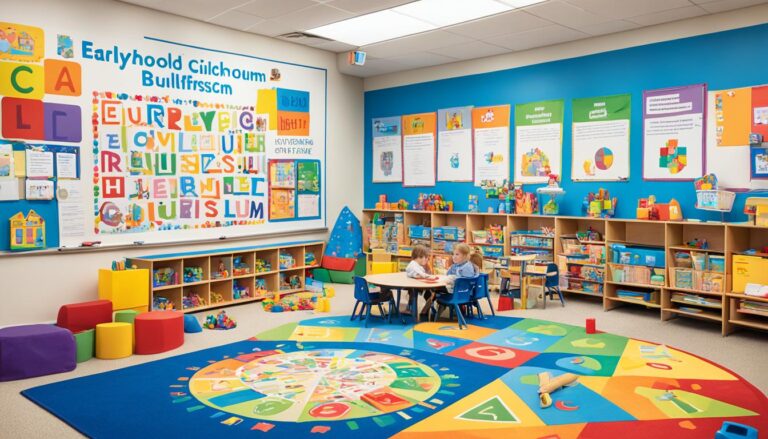Career Opportunities in Developmental Psychology: A Guide
If you are interested in a career in developmental psychology, you have come to the right place. In this guide, I will provide you with valuable information about the career opportunities available in this field and help you navigate your path towards a successful career.
Developmental psychology is a fascinating field that focuses on understanding human development and behavior across the lifespan. It explores how individuals grow and change physically, socially, emotionally, and cognitively from infancy to old age. As a developmental psychologist, you will have the opportunity to make a positive impact on the lives of individuals by assessing, diagnosing, and treating developmental issues.
The demand for psychologists, including developmental psychologists, is expected to grow by 14% from 2018 to 2028, according to the Bureau of Labor Statistics (BLS). This growth is driven by the increased need for psychological services in various settings such as schools, hospitals, social service agencies, and private companies.
There are numerous career paths you can explore within developmental psychology. Some common job titles include child psychologist, school psychologist, research scientist, and developmental therapist. Depending on your interests and goals, you can choose to work in academic settings, clinical practice, government agencies, non-profit organizations, or private practice.
When considering a career in developmental psychology, it is essential to be aware of the education requirements. Most positions in this field require a doctoral degree in psychology with a specialization in developmental psychology. However, there are some entry-level positions available for individuals with a master’s degree. Gaining practical experience through internships and research opportunities can also enhance your career prospects.
Key Takeaways:
- Developmental psychology offers a range of career opportunities in various settings.
- The demand for psychologists, including developmental psychologists, is expected to grow significantly.
- Job titles in developmental psychology include child psychologist, school psychologist, research scientist, and developmental therapist.
- Specializations within developmental psychology include cognitive development, social-emotional development, language development, and psychopathology.
- Most positions in this field require a doctoral degree in psychology, although some entry-level positions are available with a master’s degree.
Career Paths in Developmental Psychology
When it comes to pursuing a career in developmental psychology, there are numerous paths and specializations to consider. Depending on your interests and goals, you can choose from a range of exciting opportunities in various settings. Let’s explore some of the career paths available in the field of developmental psychology:
1. Academic Settings
In academic settings, professionals in developmental psychology can make significant contributions to the field through research and teaching. As an academic researcher, you can investigate different aspects of human development, exploring theories, testing hypotheses, and publishing your findings in scholarly journals. Teaching positions allow you to impart knowledge to the next generation of psychologists, helping shape the future of the discipline.
2. Clinical Practice
For those passionate about providing direct services, clinical practice offers an opportunity to work directly with individuals and families. In a clinical setting, developmental psychologists diagnose and treat developmental issues, offering valuable support and interventions to promote healthy development. This path allows for meaningful and impactful work, making a difference in the lives of those you serve.
3. Government Agencies and Nonprofit Organizations
Developmental psychologists are also in demand within government agencies and nonprofit organizations. In these settings, you may lend your expertise to policy development, program evaluation, and community outreach initiatives. By working in collaboration with other professionals, you can contribute to improving the well-being and developmental outcomes of individuals and communities.
4. Private Practice
Establishing a private practice is another viable option for developmental psychologists. This career path provides you with the flexibility to specialize in specific areas of developmental psychology, such as cognitive development, social-emotional development, language development, or psychopathology. By offering specialized services and tailored interventions, you can make a direct impact on the lives of your clients.
No matter which career path you choose, it is important to note that becoming a developmental psychologist requires specific education and training. Most entry-level positions in the field require a minimum of a master’s degree in psychology, with many positions requiring a doctoral degree in developmental psychology or a related field. Additionally, obtaining licensure or certification may be necessary to practice independently or in a clinical setting.

| Career Path | Education Requirements |
|---|---|
| Academic Settings | Master’s or Ph.D. in developmental psychology or related field |
| Clinical Practice | Doctoral degree in developmental psychology or related field |
| Government Agencies and Nonprofit Organizations | Master’s or Ph.D. in developmental psychology or related field |
| Private Practice | Doctoral degree in developmental psychology or related field |
Job Outlook and Salary Potential
The job outlook for developmental psychologists is promising. According to the Bureau of Labor Statistics (BLS), employment of psychologists, including those specializing in developmental psychology, is projected to grow 14% from 2018 to 2028. This growth rate is much faster than the average for all occupations, indicating a strong demand for professionals in this field.
The increasing demand for psychological services in schools, hospitals, and other healthcare settings is driving the employment growth in developmental psychology. As more individuals seek assistance with developmental issues, the need for qualified developmental psychologists is expected to rise.
With this employment growth comes the potential for competitive salaries. The median annual wage for psychologists, as of May 2020, was $80,370 according to the BLS. However, it’s important to note that salary potential can vary based on factors such as specialization, level of education, experience, and geographic location.
Considering the positive job outlook, the potential for growth, and the competitive earnings, a career in developmental psychology offers promising opportunities for individuals passionate about understanding and supporting human development.
FAQ
What is developmental psychology?
Developmental psychology is a field that focuses on understanding human development and behavior across the lifespan.
What are the job opportunities in developmental psychology?
There are various job opportunities in developmental psychology, including child psychologist, school psychologist, research scientist, and developmental therapist.
What is the job outlook for developmental psychologists?
The job outlook for developmental psychologists is promising, with a projected growth of 14% from 2018 to 2028, according to the Bureau of Labor Statistics.
What is the median annual wage for psychologists?
The median annual wage for psychologists was $80,370 as of May 2020, according to the Bureau of Labor Statistics.
What are the career paths in developmental psychology?
Developmental psychologists can choose to work in academic settings, clinical practice, government agencies, non-profit organizations, or private practice.
What specializations are there within developmental psychology?
Specializations within developmental psychology include cognitive development, social-emotional development, language development, and psychopathology.
What are the education requirements for a career in developmental psychology?
The specific education requirements for a career in developmental psychology may vary, but typically include a doctoral degree in psychology.
How much does a developmental psychologist earn?
The median annual wage for psychologists was $80,370 as of May 2020, according to the Bureau of Labor Statistics.






